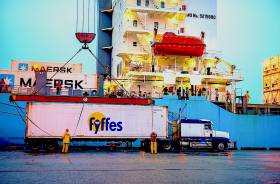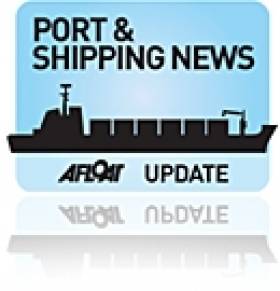Displaying items by tag: Fyffes
One of the world’s largest and oldest tropical produce importers and distributors, Fyffes announced today its support for new global regulations that will limit the sulphur content in all marine fuels to 0.5 percent beginning January 1, 2020.
Since the company’s inception in 1888, Fyffes has been committed to bringing the world the highest quality product, while striving to maintain the highest environmental and sustainability standards across its operations. Responsible for the shipment of over 100 million boxes of bananas, pineapples and melons each year, Fyffes understands the environmental impact of its actions. For this reason, it is committed to collaborating with its supply partners to continue protecting the world’s natural resources by supporting and meeting the new regulation standards established by the International Maritime Organization.
Jeronimo Poggio, Fyffes shipping director, said: “We strongly support the need for the IMO 2020 sulphur regulations because they are directly linked to our Sustainability Strategy and one of our four pillars – stewardship for the planet. The regulations will help reduce carbon emissions, as well as reduce acid rain, which can harm agricultural crops, including our fruit. Importantly, there is also a positive human impact by reducing illnesses and deaths caused by sulphur emissions impacting people living near ports. We are committed to providing the highest quality fruit at an affordable price for consumers, while ensuring that our business is a sustainable one; for our growers, the local communities, as well as the planet.”
Through its support of programs such as Global GAP, the Sustainable Agriculture Network (Rainforest Alliance), the Carbon Trust Standard and increasingly stringent environmental legislation in production countries, Fyffes always seeks to minimise the impact of its activities upon the environment, particularly in its source countries.
As part of this drive towards improved sustainability, Fyffes has initiated its own series of projects aimed at measuring, managing and reducing its carbon footprint. One such project involves setting aside forested areas to promote carbon sinks. Fyffes manages a 43 percent conservation area that is part of the company’s owned banana and pineapple farms. This conservation area is made up of important primary and secondary forested areas that absorb and capture carbon dioxide, thereby removing it from the atmosphere. In addition to this effort, Fyffes has also begun a baseline study to identify its carbon footprint along each component of the company’s supply chain, which will be complete by the end of 2019.
A respect for the environment and a commitment to the principles of sustainability are at the heart of the Fyffes brand, and the company looks forward to continuing to work in collaboration with its partners to develop and implement new solutions and practices that will result in a positive impact on the environment.
To learn more about Fyffes, visit here as well as links for Fyffes social media pages and Twitter
Fyffes Container Technology Broadens Market Reach
#BananaBoxBoats – Fyffes, Europe’s biggest banana importer headquartered in Dublin is through its Costa Rica base exporting fruit to growing markets in Russia and the Middle East.
New shipping containers will now allow Fyffes to export fruit from Central America into growing markets in Russia and the Middle East, according to the managing director of the Irish company's Costa Rican subsidiary.
Speaking on a visit by Minister of State for Trade and Development Joe Costello, Fyffes general manager for Central America Alasdair Macleod said the company had been exporting 120 atmosphere-controlled containers of bananas and pineapples a week to Scandinavian countries this year. The containers can keep the fruit fresh for 23 shipping days.
Advances in container technology that preserve fruit over 35 days of shipping could allow the company to export more produce into Europe, better quality food into Russia and more fruit into the Middle East.
For much more on this story, The Irish Times reports.






























































